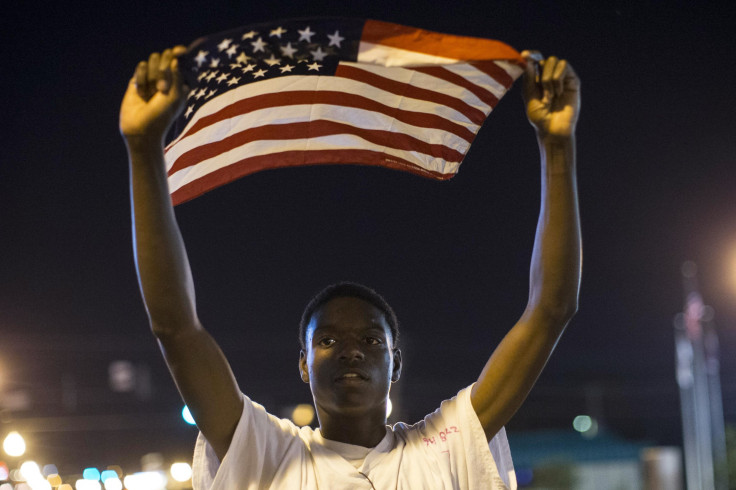Ferguson Grand Jury Decision On Darren Wilson: Missouri Fosters Discussion With Students, Protesters About Fear, Ways To Respond After Michael Brown Shooting

As a grand jury decision on the Michael Brown shooting in Ferguson loomed, nearby pastors and school officials were encouraging dialogue and nonviolent protests. Some groups targeted young people around 18, the age Brown was when police officer Darren Wilson shot and killed him in August.
Since then, the Clergy United for Peace has been holding conversations with high school students about their levels of vulnerability, the St. Louis Post-Dispatch reported. Black students felt scared because Wilson, a white man, shot Brown, an unarmed black teenager. They were also angry, which made their teachers and pastors worried.
“It really doesn’t make a difference what gender you are," junior Monecia Hudson told the St. Louis Post-Dispatch. "Police -- they don’t care who you are. If they feel you’re doing something wrong they’re going to do whatever they feel.”
The focus in group sessions recently became the pending grand jury decision, which was due to come soon. The jury was nearing a ruling Thursday on whether to charge Wilson with Brown's death, Time reported.
About half of the East St. Louis High School students participating said they thought Wilson should be indicted. Others weren't sure, the St. Louis Post-Dispatch reported, and several had questions: Would the jury make the correct choice? How could a police officer shoot a person multiple times? Why wasn't Wilson arrested?
Missouri was urging residents not to riot when the jury announces its decision. The clergymen told the students it was OK to be mad, but they needed to focus on political activism, not violence in the streets. “If you are angry, be angry in a system that your forefathers have put in place,” said Rev. Robert White. “It’s going to change when you’re able to vote. Votes can change a system.”
Across the city, other leaders seemed to recognize that protest in Ferguson was coming. "If Darren Wilson is not indicted, people are going to take to the streets, no question," Rev. Tommie Pierson told the Huffington Post.
But even organizers were preaching peace, the St. Louis Post-Dispatch reported. They told people to bring maps, clothes, snacks and water to street protests. They recommended gas masks. They taught HALTS, an acronym that reminds protesters to feed their hunger, monitor their anger, talk if lonely, go home if tired and not internalize the situation too seriously.
“It should be enjoyable, to tear down this system of oppression,” an instructor told a crowd. “Somewhat enjoyable. Gratifying is a better word.”
© Copyright IBTimes 2024. All rights reserved.












